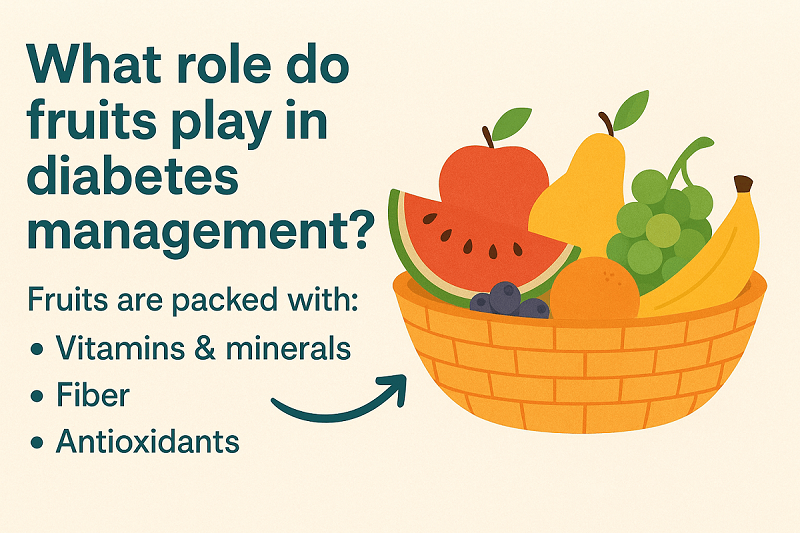
Living with diabetes can feel overwhelming—constant monitoring, dietary restrictions, and lifestyle changes. But what if something as simple and natural as eating more fruit could help manage diabetes and transform your overall health and wellness?
In this blog, we’ll explore the power of fruits, their role in blood sugar control, and how one person’s journey of adding more fruits to their diet led to remarkable health improvements.
What Role Do Fruits Play in Diabetes Management?
For years, many people with diabetes avoided fruit, believing its natural sugars would spike blood sugar levels. However, modern research tells a different story.
Fruits are packed with:
- Vitamins & minerals essential for health.
- Fiber, which slows down sugar absorption.
- Antioxidants that fight inflammation and oxidative stress (both linked to diabetes complications).
Learn more about functional nutrition here (add link here)
The Power of Fruits: Why They’re Good for Diabetes
Not all sugar is created equal. The natural sugars in fruit are different from refined sugars found in soda or candy.
Here’s why fruits are a diabetes-friendly powerhouse:
- Low Glycemic Index (GI): Fruits like apples, berries, and oranges release sugar slowly, preventing spikes.
- Rich in Fiber: Improves digestion, supports weight management, and stabilizes blood sugar.
- Nutrient Density: Provides energy without empty calories.
- Improves Insulin Sensitivity: Some fruits may help the body use insulin more effectively.
Case Study: How Eating More Fruit Changed a Life
Meet Sara, a 45-year-old woman living with type 2 diabetes. Like many, she was told to cut out fruits. But after learning about the healing power of fruits, she gradually reintroduced them into her diet.
Her daily plate began to include:
- A handful of blueberries with breakfast.
- A small apple as a mid-day snack.
- A slice of watermelon on hot afternoons.
Within months, Sara noticed:
- Stable blood sugar levels compared to before.
- Weight loss without restrictive dieting.
- More energy and less fatigue.
- Better skin and digestion.
This transformation shows how eating more fruit, in balance, can change the diabetes journey.
Best Fruits for People with Diabetes
Not all fruits affect blood sugar in the same way. Here are the top diabetes-friendly fruits:
- Berries (blueberries, strawberries, raspberries): Packed with antioxidants, low in sugar.
- Apples & Pears: High in fiber, easy to carry as snacks.
- Citrus (oranges, grapefruits, lemons): Vitamin C boosts immunity and regulates sugar.
- Cherries: Naturally anti-inflammatory.
- Avocados: Technically a fruit—rich in healthy fats that support insulin sensitivity.
Fruits to Eat in Moderation
Some fruits are healthy but should be eaten in moderation due to their higher sugar content:
- Bananas (especially ripe ones)
- Grapes
- Mangoes
- Pineapple
The key is portion control. Pairing these fruits with protein or healthy fats (like nuts or yogurt) helps balance blood sugar
How Fruits Improve Overall Health and Wellness
Adding more fruit to your diet isn’t just about diabetes—it improves total wellness:
- Boosts immune system
- Supports heart health
- Improves digestion and gut microbiome
- Enhances skin glow and anti-aging effects
- Lifts mood and mental clarity
A diet rich in fruits helps the body fight inflammation, reduces cholesterol, and prevents lifestyle diseases.
Simple Tips for Adding More Fruits to Your Diet
Here are some easy, practical ways to include fruit daily:
- Start your morning with a fruit smoothie blended with spinach and chia seeds.
- Swap sugary snacks with fruit and nuts.
- Add berries to oatmeal or yogurt for fiber and antioxidants.
- Keep a fruit bowl visible at home to encourage healthier choices.
- Choose seasonal fruits for better taste and nutrition.
Myths About Fruits and Diabetes
Let’s clear up some common misconceptions:
- ❌ “Fruit raises blood sugar too much.”
✅ Fact: Fiber slows sugar release, making most fruits safe. - ❌ “Diabetes patients should avoid bananas completely.”
✅ Fact: Small portions are fine when paired with protein. - ❌ “Only sugar-free diets work for diabetes.”
✅ Fact: Natural sugars from fruit nourish the body safely.
Final Thoughts
The journey of beating diabetes isn’t about deprivation—it’s about smarter choices. The power of fruits lies in their natural ability to heal, energize, and balance the body.
By adding more fruits to your daily diet, you can:
- Manage diabetes naturally
- Improve your overall health and wellness
- Feel energized, balanced, and in control of your body
Remember: It’s not about perfection. It’s about progress. Start with one fruit a day, and let your health transform—naturally.
